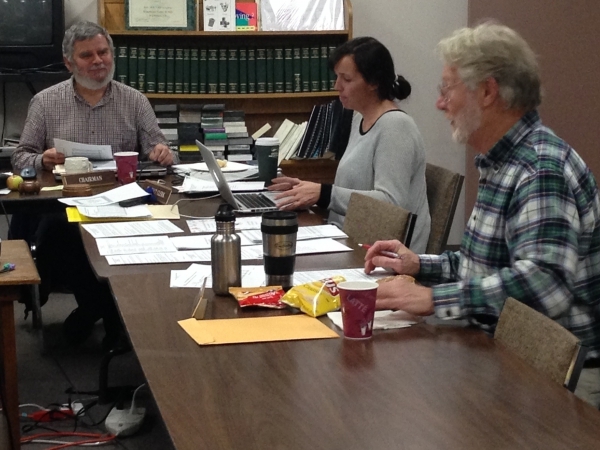BRATTLEBORO — Next year, how towns in the Windham Solid Waste Management District (WSWMD) pay for recycling and other programs could change.
On Dec. 10, the Board of Supervisors for the WSWMD approved a seven-member committee to explore other financial models - such as fee-for-service - that the district could use to raise money from its 20-member towns.
Currently, member towns pay an assessment to the district based on population.
This assessment provides programs such as community recycling bins, hazardous waste collection days, and educational programing. Regardless of which town they reside in, residents can access programs across the district. For example, residents of Wilmington can drop recycling at Marlboro's community recycling bins and vise versa because both towns pay into the district.
Brattleboro's Selectboard, however, called into question the district's assessment structure after board members took umbrage with paying for community recycling bins located on Fairground Road.
Selectboard Chair David Gartenstein challenged the district's leadership over Brattleboro's participation in the community recycling program. Because the town provides curbside pick up of recycling through its taxes, it should not have to pay for the community bins on Fairground Road, he argued.
Gartenstein accused the district of “double-billing” Brattleboro despite the fact that town services - such as garbage pick up - are not under the district's control.
He also noted that he had raised similar concerns last year and not received satisfactory answers from the district.
Bile around the issue and toward the district peaked at the Dec. 1 Selectboard meeting, with most of the board joining the dog pile.
Brattleboro staff and district leadership met after the board meeting and discussed how to remedy Brattleboro's concerns. The Selectboard wanted the district to restructure to a fee-for-service model where towns pick from a menu of programs. Another goal was to make this change for the approaching 2017 fiscal year.
During the Dec. 10 supervisors meeting, district supervisors representing other Windham County towns expressed concern about how the changes Brattleboro wanted might adversely impact their communities.
Would another structure, such as fee-for-service, be equitable?
James Damato, alternate for Readsboro, said towns are feeling the budget crunch and are looking for ways to shift costs. Yet for 25 years, the member towns have benefited from their collective waste management district.
To Damato, a fee-for-service model felt like “taking that agreement and throwing it out the window.”
On Dec. 10, the district's supervisors compromised. They approved creating a research committee that will explore different funding models. In conjunction, district staff will closely track for six months how towns use its programs and to what extent.
The committee will use the collected data to recommend a new funding structure in time for the fiscal 2018 budget cycle.
“Can it be done? Sure,” said Jan Ameen, vice chair of the board of supervisors and representative for Westminster, about changing the district's financial structure. “Is it going to be easy? No. Because it's not clean.”
She noted that basing assessments on population may not be the best way to dole out costs either.
“Not all of our services fall along population,” she said.
David Schoales, representative to the board for Brattleboro, agreed that changing the structure might not be easy, but he didn't see any alternatives now that Vermont's laws around waste management had changed.
“We don't really know what the truth is of what things cost,” under the current assessment structure, Schoales said.
The committee will consist of two district staff members, two members from Brattleboro (one supervisor and one town staff member), and three supervisors representing other towns.
Brattleboro's representatives to the district, Schoales and John Allen, praised the creation of the committee.
While thanking the district for hearing Brattleboro's concerns, Town Manager Peter Elwell also appeared to be doing some damage control on behalf of the Selectboard.
Elwell said to Ameen during a break in the meeting that, for Brattleboro, the discussion on assessments was never about money. Instead, it was all about fairness.
